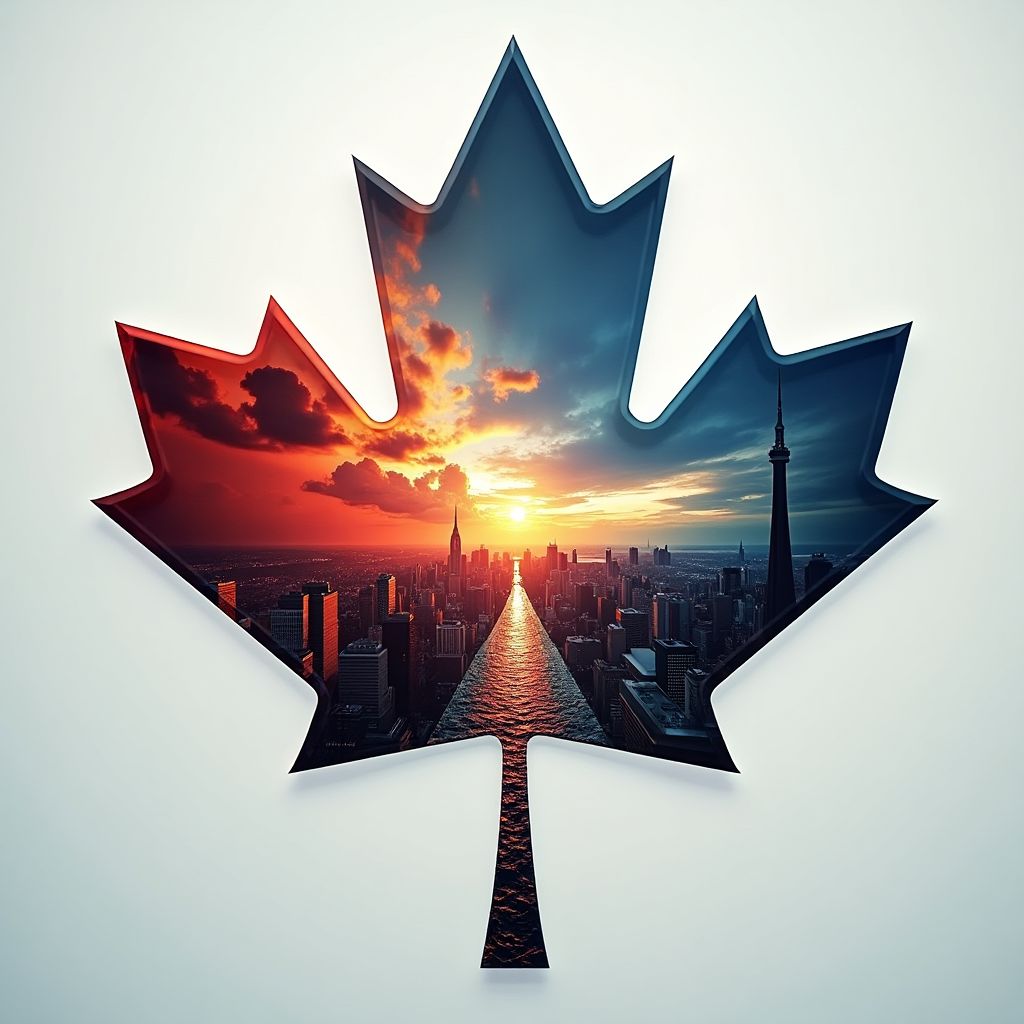If you want a taste of political upheaval, take a trip to Canada right now. We're baited breath awaiting the fate of Canada's ruling Liberal Party. According to Zeihan on Geopolitics, this crisis isn't just a political bump in the road—it's a full-on existential investigation into the heart of Canada's governing ideologies. Grab your umbrella, folks, as the winds of change are blowing at 120 kilometers per hour, and in that metric, it's exhilaratingly fast.
You heard that right, Canada’s political landscape is on the fritz. It’s akin to one being grounded at the base of New Zealand's Tongariro Crossing because of gusty winds, except this time, the gales of change could sweep Prime Minister Justin Trudeau’s government out to sea. If you're scratching your head, asking, "Is Canada about to lose its government?" you're in sync with the 17 voices that echoed the same inquiry this past Monday alone. Spoiler alert: it’s possible, and here’s why.
The Empty Suit Dilemma
The story begins with our protagonist, the Canadian Liberal Party, and their, let's say, "challenging" history with capable leadership. Picture this: a party devoid of charismatic leadership post-Stephen Harper, they needed a shiny frontman—enter Justin Trudeau, a borderline failed kindergarten teacher with a famous Canadian name.
Trudeau’s father, Pierre Trudeau, was a political lion, but Justin? He’s often portrayed as an airhead, an empty suit with fabulous hair. A decade ago, the Liberal strategists thought why not put some great political minds behind the scenes and let Justin play the charming puppet? That’s strategic leveling up for you!
The Mastermind: Chrystia Freeland
Enter the sharp intellect behind the charismatic facade: Chrystia Freeland, Canada's former Foreign Affairs Minister, Finance Minister, and Deputy Prime Minister. This former journalist knows too much about Russia long before it became fashionable. Her masterstroke was redefining Canada in the modern world, essentially rewriting its role when Donald Trump tossed out the old playbooks between America and its most agreeable neighbor.
You might credit her successful navigation through these tumultuous waters—daring to spar with big fish like Trump and reinvent Canadian foreign affairs—but that gig's over. Freelund just left the political stage revealing a rift the size of Alberta’s oil sands between herself and Trudeau.
Why This Matters—Now More Than Ever
Canada's long-term politics are like tossing a kaleidoscope of confetti at wild kittens. The country's dynamic geopolitics swing from crisis to opportunity due to the divided power structure of Canadian confederation. Each of Canada’s provinces carries more civic authority than our southern U.S. counterparts. It's practically a cocktail party filled with ten different sets of economic ideals, accented with flirtations towards secession from places like Quebec's Bloc Québécois.
The kaleidoscope now turns, and how the splits fall is anyone’s guess, but without Freeland crafting and directing the next act, the show’s about to get a lot more interesting.
Here’s a Hitch: Immigration and Housing
The Canadian government needs a steady stream of heady immigrants to combat its rapid aging population. Under Harper and continued by Trudeau, this liberal solution seemed great on paper—open the floodgates to young, fresh talent! Yet, here we are with soaring real estate markets and urban centers swelling under the weight of our foreign-born hopes and dreams.
Can the rest of Trudeau's government survive without Freeland’s guidance through economic maelstroms? If taxes on trade with the U.S. spike, the fallout from this political survival game would be harsher than any exile the TV channels have ever broadcasted. Spoiler alert: immigration isn't just a federal conundrum; it’s also the playground bully to economy issues, starring inflation as the boogeyman.
Watch the Full episode:
The Domino Effect on U.S.-Canada Relations
Sifting through this mosaic, relations with America have surprisingly taken a back seat. However, should increased tensions lead to a tit-for-tat trade spat, you’d wager this issue catapults back to primacy. Socially and economically, Canada remains indelibly intertwined with the United States. Our mistimed tariffs could echo through the economies like reverberations from a dropped bass line during Canada’s national anthem at a hockey match.
What's Next? The Question of Canadian Identity
Ultimately, if Freeland opts to make her own political play, the question remains: Can she pull Canada from this existential tailspin, align the kaleidoscope shards, and foster a stronger national identity threading from ten different provincial cores? Or, will she leave the electoral electorate hoping for something… more?
So, dear reader, with the front-row seat to this Canadian kaleidoscope, what are your thoughts? How should Canada navigate this rocky road ahead? Does Freeland's exit spell doom or open up an exciting chapter for the Liberal Party? Share your thoughts, join the dialogue, and be part of the iNthacity community. Apply to become permanent residents, then citizens of "Shining City on the Web". Let’s write the next page together!
Wait! There's more...check out our gripping short story that continues the journey: The Tangled Threads of Power
Disclaimer: This article may contain affiliate links. If you click on these links and make a purchase, we may receive a commission at no additional cost to you. Our recommendations and reviews are always independent and objective, aiming to provide you with the best information and resources.
Get Exclusive Stories, Photos, Art & Offers - Subscribe Today!


























Post Comment
You must be logged in to post a comment.